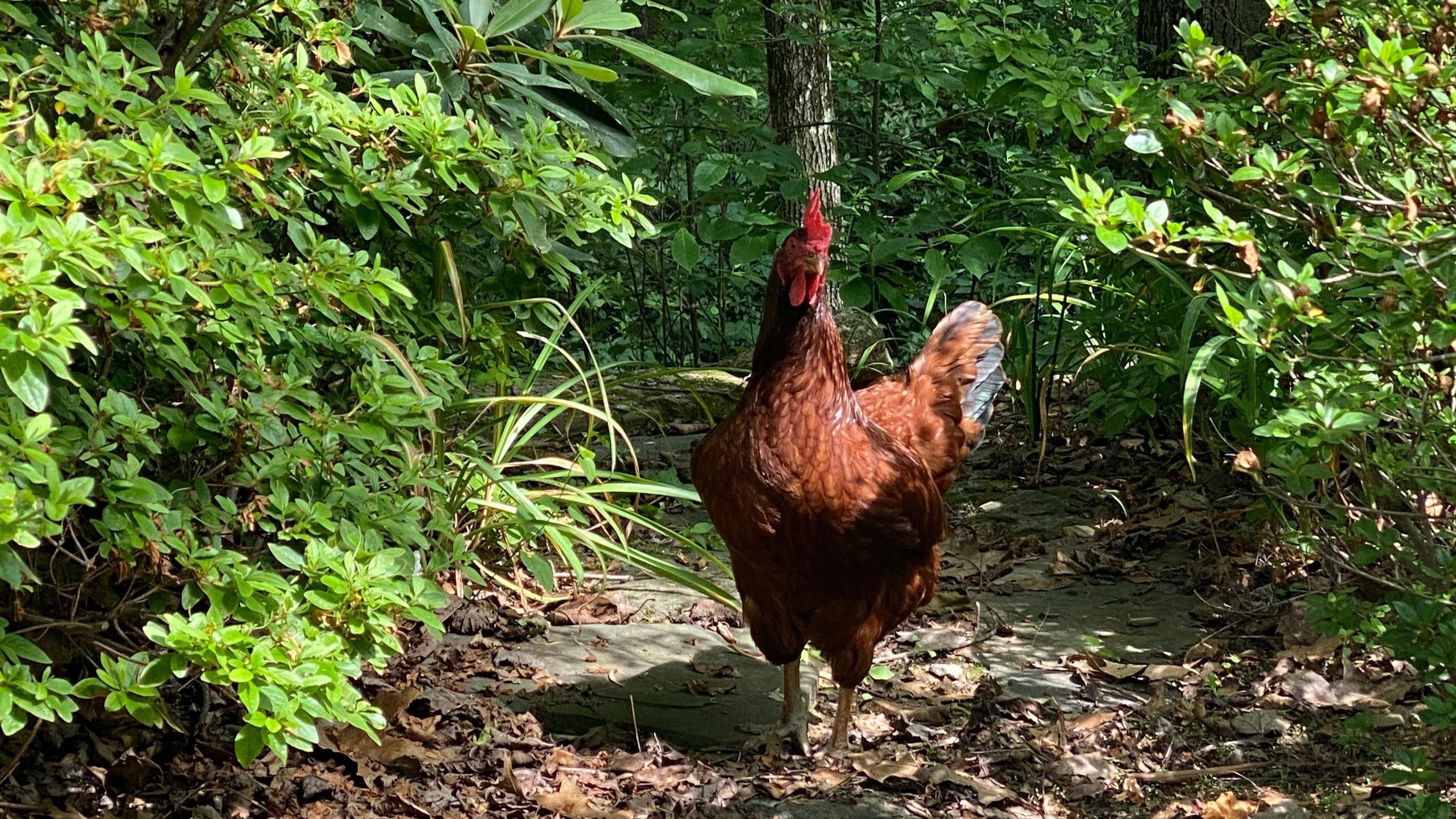#009 The Core Four: Stress
Feb 26, 2023
Ayurveda is the Mother of all Healing Arts. As a holistic science it considers both physiological and metaphysical causes of disease and paths to healing. Any one who's studied it can tell you, it’s big on personal responsibility. There is no outsourcing your health and wellbeing.
Prajnaparadha: the Root Cause of Disease and Suffering
The ancient text states that “prajnaparadha” (pronounced praj-a-parad-ha) is one of the root causes of disease and suffering. Prajnapradha is the act of willfully ignoring our inner knowing and common sense. Simply put, it translates to ‘crimes against wisdom’.
This wisdom described by ancient sages is different than knowledge or information. It is the deep intuition and inner knowing that all sentient creatures are born with.
Take for example our chickens. I can assure you I did not teach them how to detect danger. Yet, from birth if a large shadow flies over their head they instinctively run inside the chicken coop. There was no trial and error. They were born knowing that many of their predators attack from above. Any rapid movement at all causes them to scramble for cover. Of course, just like people, chickens show varying degrees of disregard to their wisdom when it stands between something they desire.
Case in point - as I write this Bertha (pictured above) is out of the coop all by herself. Earlier the dogs alerted to something big in the woods near where the chickens were foraging. My best guess is a coyote. I immediately ran outside and managed to lead all but Bertha into the safety of their coop.
She refused. The desire to forage for worms after a night of rain was too great and a pretty risky crime against wisdom. She’s completely vulnerable right now.
How the concept of Prajnaparadha relates to modern stress.
You don’t have to look hard or think too long to find something to stress about. Yet, science tells us that we are actually quite adept at handling acute stress. Like the chickens we are wired to perceive danger and react.
Unfortunately, we’re terrible at managing the chronic, low risk, nagging stress. The consistent pressure and feeling of overwhelm that comes from daily life. Things we may actually have control over or at least emotional control over that gets to us. Deadlines at work or school, conflicts with friends or family, even the eternal ‘what am I going to cook for dinner?’. Or the ultimate crime against wisdom, doom scrolling the internet.
How stress manifest in the body.
Much like mainstream medicine, physical manifestations of stress in Ayurveda is described as a disturbance of the nervous system. Ayurveda states that the nervous system is controlled by the vata dosha. So, stress is an imbalance of vata. This is imbalance is expressed in different ways depending upon your primary dosha.
Which stress response describes you best?
Vata types are energetic, creative, with vivid imaginations and have a heck of a time making decisions. They are naturally more susceptible to stress and sensitive to changes due vata being their primary dosha. Their stress response shows itself through anxiety, insomnia, fear and feeling overwhelmed and isolated.
When feelings of stress begin to arise, vata’s do best to prioritize rest, warmth and feeling safe. Taking warm baths or saunas, going to bed early with a good light hearted book are all important practices. Even just sitting still and focus on breathing for a few minutes can work wonders. Trying to ‘burn off’ stressful energy or exhausting yourself at an attempt to get sleep is counterproductive.
Always nourish vs deplete a vata.
Pitta types are driven, competitive, sharp-witted and direct. Their stress response is expressed through frustration, anger and irritability. It can appear that they strive in stress and love a challenge but they are susceptible to burning out.
When stress arises for pitta, it’s best to focus on calming energy, moderation and chiling out. Nature works wonders for pitta so taking a walk in the woods or the park is a great way to reset. Pitta’s need time to get their thoughts together and process or they are prone to lash out if feeling pressured (my husband calls it the laser of truth, I tend to get a little too direct). Ensuring you have some space and time to think is important.
Kapha types are calm, compassionate, grounded and steady. They’re the anchor that holds everything and everyone together. Their laidback nature makes them the most resistant to stress. When stress does arise their nature is to withdraw, often becoming very stubborn and depressed. They’re prone to hold onto grudges for a long time.
Keeping a kapha active and moving is key to them not getting stuck. They love a group activity so playing tennis, hot yoga class or dinner and dancing with friends is a great remedy.
The key to avoiding ‘crimes against wisdom’ is to catch the imbalances early on. Even though the recommendations may seem simple or obvious implementing them actually works. Think about it, there’s over 5000 years of observational evidence and a reason these patterns persist.
Understanding your unique type and triggers helps mitigate a mild annoyance growing into a major problem.
What routines have you created to deal with life stressors? What coping habits need changing?
PS- Bertha is fine. I just went to check on her and she was standing by the coop door waiting to be let in. I think she may have some kapha stubborness going on. 😊
With love and gratitude,
Anna
SUBSCRIBE FOR WEEKLY TIPS, TOOLS & STRATEGIES
We hate SPAM. We will never sell your information, for any reason.


